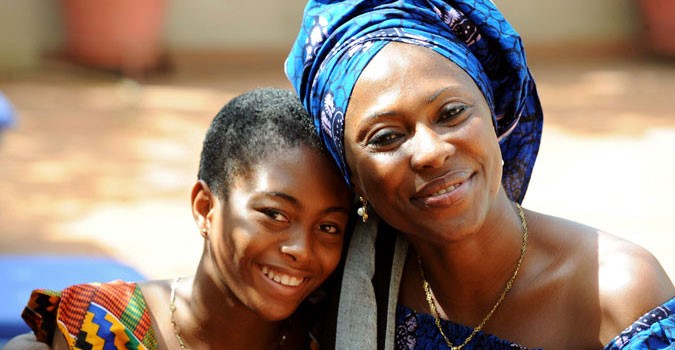Guaranteeing gender equality and empowering all women and girls is key to unlocking Agenda 2030 for Sustainable Development and Africa’s Agenda 2063, writes Angela Lusigi.
It is true that “Gender equality is more than a goal in itself. It is a precondition for meeting the challenge of reducing poverty, promoting sustainable development and building good governance” (Kofi Annan). On 28th August 2016, Kenya President Uhuru Kenyatta unveiled the Africa Regional Human Development Report 2016 on Accelerating Gender Equality and Women’s Empowerment in Africa in Nairobi with 14 African heads of state, prime ministers and ministers. Our report, with contributions from Nobel Laureate, Leymah Gbowee, and support from Japan and the Open Society Initiative for West Africa, called for Africa to advance sustainable human development by ensuring real gender equality.
Engendering all development actions ensures they are not endangered
We know guaranteeing gender equality and empowering all women and girls is key to unlocking Agenda 2030 for Sustainable Development and Africa’s Agenda 2063. In 2014, Africa ‘lost’ up to $105 billion from gender gaps in labour markets alone, almost 6% of all production.
Four inter-connected pathways would achieve more equal human development outcomes. First, complete existing legal reforms for more gender equality and engage women in decision-making at all levels, particularly in conflict resolution and peace consolidation where they are woefully under-represented. In addition, eliminate discriminatory social institutions that block women’s health and education and provide equitable access to economic, financial and natural resources.
UNDP partners with public, private and multilateral institutions at national, regional and global levels to implement this Action Plan. Early success in Uganda has seen 41 private companies step up to promote Gender Equality in the workplace through a Gender Equality Seal Certification on standards that foster equality of opportunities.
In 2018, at least 34 countries across Africa have implemented practical actions to create employment, access to finance and markets in Guinea Bissau, South Sudan, Tanzania and 9 other countries; to strengthen participation in governance, social cohesion and access to justice in 31 countries; and to enhance equitable access to quality public services in Burkina Faso, Central African Republic, Gambia, Lesotho, Sao Tome and Principe, Uganda.
Gender equality as the organizing lens for development planning
Our forthcoming report- Closing Gender Gaps in Labour and Productive resources in Africa - showcases successes, gaps and policy options to ramp up women’s access to rewarding jobs and ownership of productive resource.
Three key facts emerge. The root causes of gender gaps in labour and access to productive assets for African women are continued legal discrimination, negative gender norms and stereotypes, and women’s disproportionate care burden. Negative perceptions, attitudes and historic gender roles transmitted as lower education opportunities and limits to choice jobs or profession means that many women are less likely to have decent jobs. They are also more likely be responsible for the lion’s share of unpaid domestic and care work.
On one hand there are relatively more African women in the workplace compared to other regions. Almost 7 out of 10 women in sub-Saharan Africa are in the labour force compared to nearly 6 out of 10 in North America, 5 out of 10 in Europe and Asia and the Pacific. Yet many are engaged in informal, low paid and low-productive work with 76% working outside the formal non-agricultural sector compared to 59% for men.
Equalizing opportunities in the workplace, eliminating exclusion and removing the barriers that limit women’s access to productive assets would expand life choices for both women and men and transform Africa. An equal share of women and men in the labour force, equal access to paid work and the same level of productivity could raise Africa’s GDP by 3% to 16% and countries with larger gender gaps have the most to gain. If women and men carried out the same amount of unpaid care work women would gain almost 2 hours per day to spend on leisure, productive work and community participation. What better way to reduce poverty, promote sustainable development and build good governance?

 Locations
Locations
